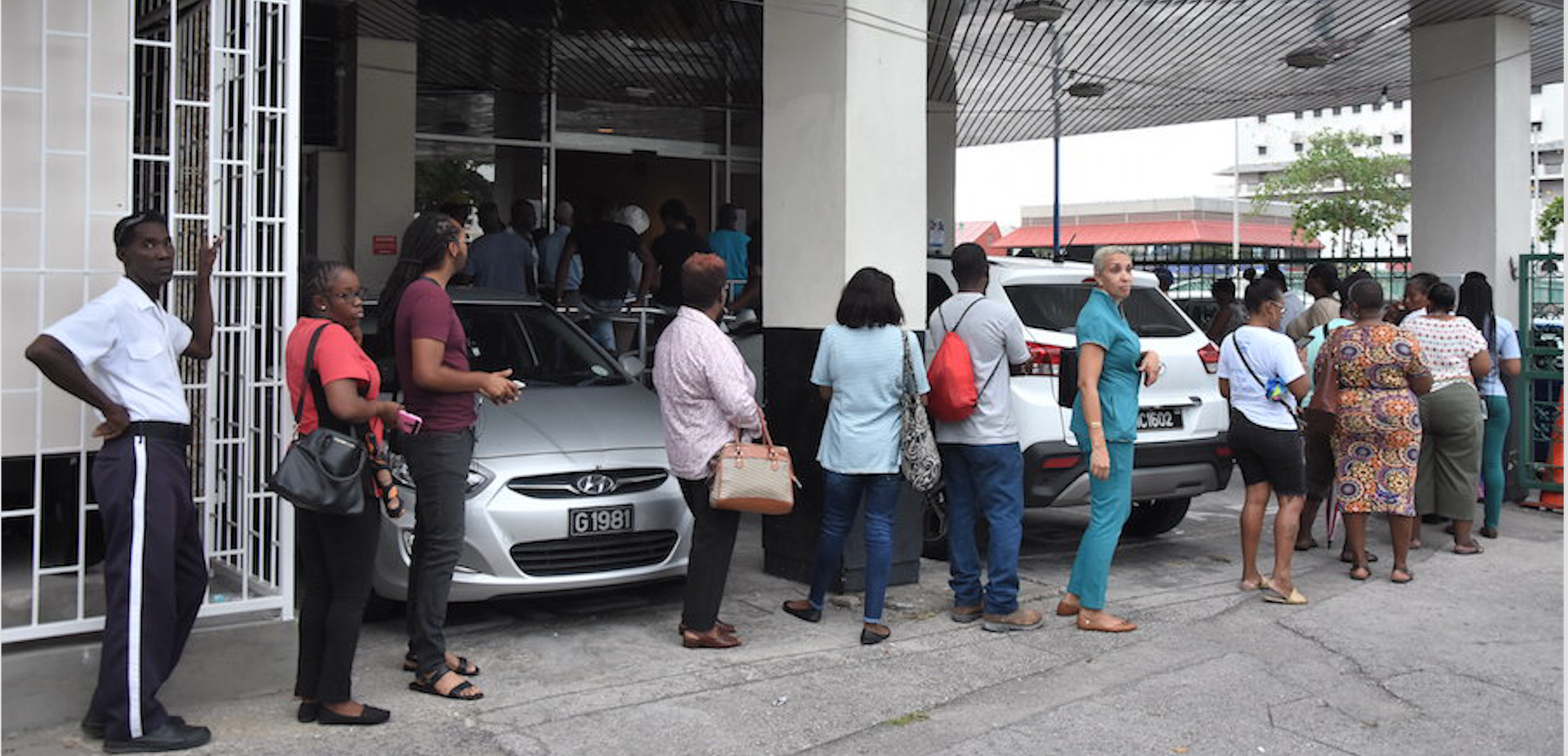The views and opinions expressed by the author(s) do not represent the official position of Barbados TODAY.
Dr. Derek Alleyne
The recently-held handing over ceremony of the Barbados Private Sector Association was instructive in many ways. The presentations by the outgoing and the incoming chairpersons revealed that the association has been and will be led by competent and progressive leaders. The ceremony also portrayed an association that is organised and resilient.
The acceptance by the leaders that progress should be seen as the responsibility of all stakeholders and social issues are as critical as economic ones suggest to me that the Association is conscious of the challenges that confront this small state but needs to widen its focus.
What concerns me however (and it was not said) is the perception that slowness of business is a public sector issue and that correcting bureaucratic delays are the responsibility of the public sector. Bureaucracy represents an ideal form of public administration. Its robust structure facilitates the attainment of public goals. It introduces fairness, rationality, discipline and equity into the public administration.
Discussions about bureaucracy have been long, detailed and varied but often the discussions center on the efficiency of the public sector while ignoring the fact that some private sector agencies are as bureaucratic as public sectors.
What is not considered is that beyond the structural inefficiencies of many bureaus the workers and the owners within the private sector live and work within the same employment culture as public sector workers.
Another common weakness in the discussion about efficiency between public and private sector agencies is the homogeneity of the two sectors. The minibus service is inefficient and disruptive but is not considered as part of the “private sector’). The scores of one and two door shops that cannot meet the conditions set out in the Safety and Health at the Work legislation are never seen as the “private sector”.
Similarly the Insurance Corporation of Barbados that was not only efficient but profitable was never deemed public sector.
I agree with Moeketsi Kali in her dissertation paper on bureaucracy in Lesotho that bureaucracy appears to be a symptom of a pervasive disease because of the rent-seeking behaviour of particular individuals.
The PhD candidate contended that bureaucracies are simply structures that political office-holders develop and employ for conducting the multifaceted activities of the state. She further contended that that their management style and performance cannot be juxtaposed against the ones of profit-seeking enterprises and therefore it makes no sense to criticizse the activity of public bureaus.
I contend that beyond the structural challenges of public bureaus the nature and efficacy of work habits across both sectors are keys to addressing any weaknesses in service delivery. I contend further that in both sectors the control element retards the level of efficiency.
In both sectors controls are placed on decision making.
In the private sector excessive time and resources are assigned to guarding against pilferage and wastage by using expensive and time-wasting control systems. Nepotism and poor recruitment practices are prevalent across the private sector at all levels of operations. In the public sector this control against the above-mentioned vices is attempted by utilising several layers of approval. Like the private sector recruitment is hindered by interference in the natural process by political interference that undermines productivity.
A work culture develops through the relationship between the employer and the employee not only at the individual level but across the elements that bind or divide individuals and groups. Public and private sector workers share the same households, attend the same churches and increasingly shift between the two sectors.
Over the last twenty years there has been a mad rush to make public sector administration reflect the practices in the private sector. In Barbados from 2018 there has been a steady decrease in administrative staff and a correspondent reliance on technical staff. The technicians have been asked to perform administrative functions.
The result has been confusion, delays and poor service.
The Barbados Revenue Authority, Town and country Planning Office and the Licensing Authority are prime examples of administration gone mad. In the private sector the glaring examples of declining service reveals itself in any bank and at the Barbados Light and Power.
All these deteriorating services have materialised even though new technology has been introduced designed to streamline operations. The impact of technology on work culture is an area that begs for discussion.
In an article “New technology and the Digital age” it has been argued that the new technological age has ushered in new relations and the school is still out as to its impact on relations at work. The most crucial change relates to the replacement of the traditional concept of the human being as a separate entity by a new ontological self-perception of human beings as an information organism, interconnected with the entire world (Levin & Mamlok, 2021).
Work relations have now been placed in a spin as a technological culture has begun to challenge the spirituality of the traditional culture. Any effort to influence work habits must now look beyond any divisions across public and private sector structures and practices to a focus on the impact of technology and its universality on work relations.
Dr. Derek Alleyne is a trade unionist, social commentator and member of the Democratic Labour Party.




